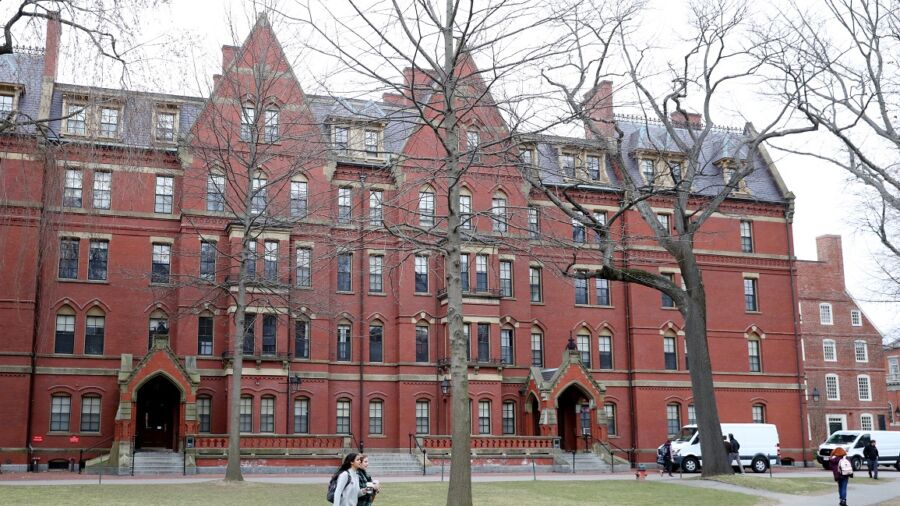Following the recent Supreme Court ruling against affirmative action policies in college admissions, activists have filed a complaint seeking to end legacy and donor admissions at Harvard, arguing it privileges white applicants, a claim that some say is without merit.
The complaint against Harvard has been filed by Lawyers for Civil Rights (LCR) on behalf of the African Community Economic Development of New England (ACEDONE), the Greater Boston Latino Network (GBLN), and the Chica Project. It was filed with the U.S. Department of Education’s (DOE) Office for Civil Rights (OCR) on Monday. Legacy admissions is the practice of giving preference to an applicant because the individual is related to an alumnus at a school.
The complaint (pdf) argues that Harvard grants “special preferences” in its admission policies to applicants whose relatives are wealthy donors to the institution or are alumni of the college.
“The students who receive these special preferences are significantly more likely to be accepted than other applicants, and constitute up to 15 percent of Harvard’s admitted students.”
Such students are “overwhelmingly white,” the lawsuit stated. “For the period 2014-2019, nearly 70 percent of the students admitted with Donor and Legacy Preferences were white.”
The case argues that Donor and Legacy Preferences “disproportionately advantage” white applicants and thus “systematically disadvantage” students of color, including Black, LatinX, and Asian Americans.
Some people point out that the claim of legacy admissions disproportionately benefiting white applicants is not true. Such criticism “lacks merit,” Trey Tepichin, an entrepreneur, said in a July 3 tweet.
“Though some legacy admissions are unmeritorious, these are outliers. Most legacy students have stellar academics. Their family ties are just an added bonus.”
“This is borne out by the admissions data showing that legacy admissions notwithstanding, admitted whites still have higher academic credentials in the aggregate than all other racial groups save for Asians,” he said.
Violation of Civil Rights Act
According to the lawsuit, Donor and Legacy Preferences are not justified by any educational necessity because “Harvard cannot show that the use of these preferences is necessary to achieve any important educational goal.”
Such preferential treatment “violates federal law,” since Harvard receives “substantial federal funds” and, as such, is bound by Title VI of the 1964 Civil Rights Act that prohibits practices having an “unjustified disparate impact” on a racial basis.
The lawsuit pointed out that since Harvard only admits a certain number of students annually, a spot given under Donor and Legacy Preferences is a spot that becomes unavailable to “an applicant who meets the admissions criteria based purely on his or her own merit.”
A survey by The Associated Press last year found that legacy students made up 4-23 percent of students in the freshman class. In four schools—Notre Dame, USC, Cornell, and Dartmouth—legacy students were found to outnumber black students.
Ending Legacy Admissions
The lawsuit stressed the need to end legacy and donor admissions, particularly since the U.S. Supreme Court has limited the use of race as a factor in the admission process, which it claims has a negative impact on campus diversity.
“Experts have found that reducing or eliminating Donor and Legacy Preferences enhances diversity in higher education—an interest Harvard has claimed to be of the highest magnitude. The fact is that, if the Donor and Legacy Preferences did not exist, more students of color would be admitted to Harvard.”
On June 29, the United States Supreme Court struck down affirmative action admission policies at American colleges as part of a case against Harvard and the University of North Carolina. The Court ruled that race-based admission programs at universities are unconstitutional.
Several Republicans are also pushing for ending legacy admissions. This includes Sen. Tim Scott (R-S.C.), a candidate for the 2024 GOP nomination for president. Scott, who was the first black U.S. senator from the South in more than a century when he joined the Senate in 2013, also opposes affirmative action policies.
From The Epoch Times

